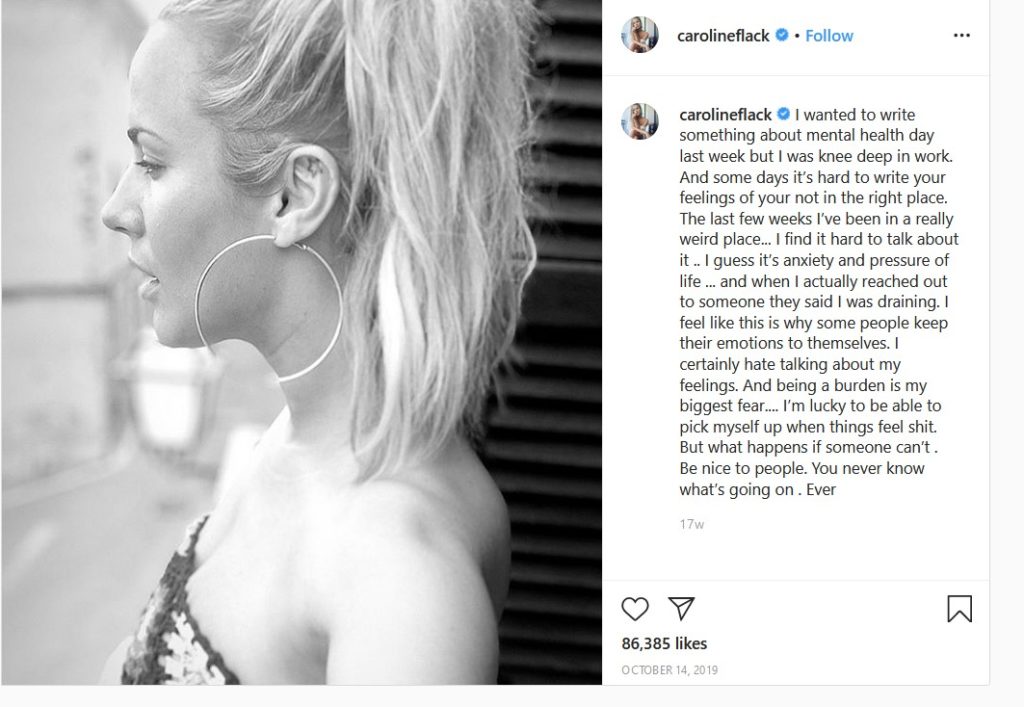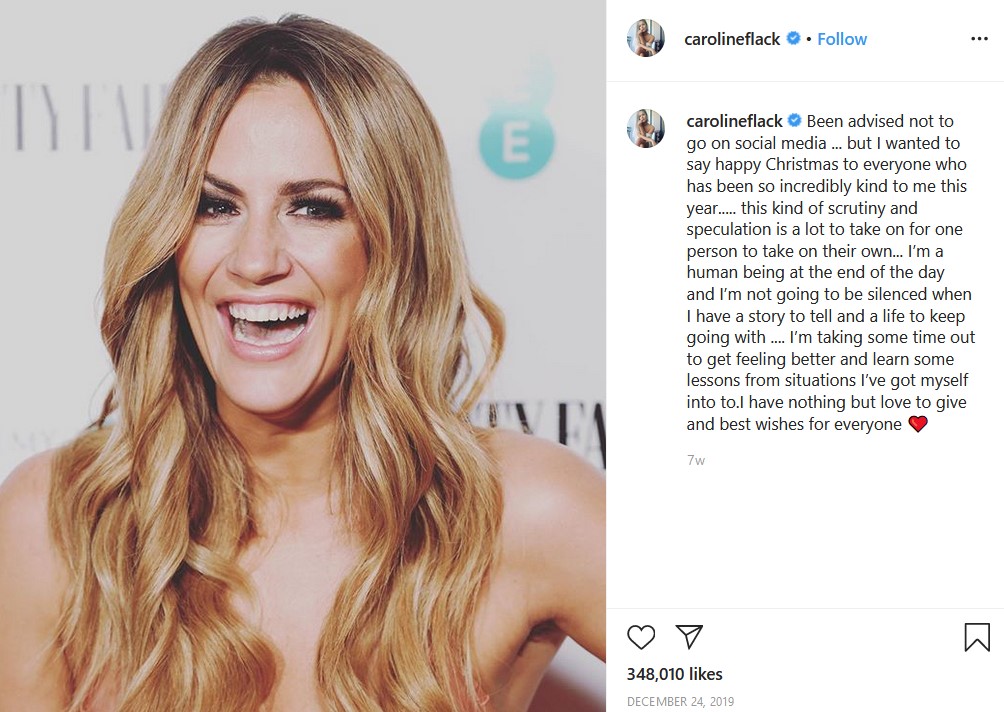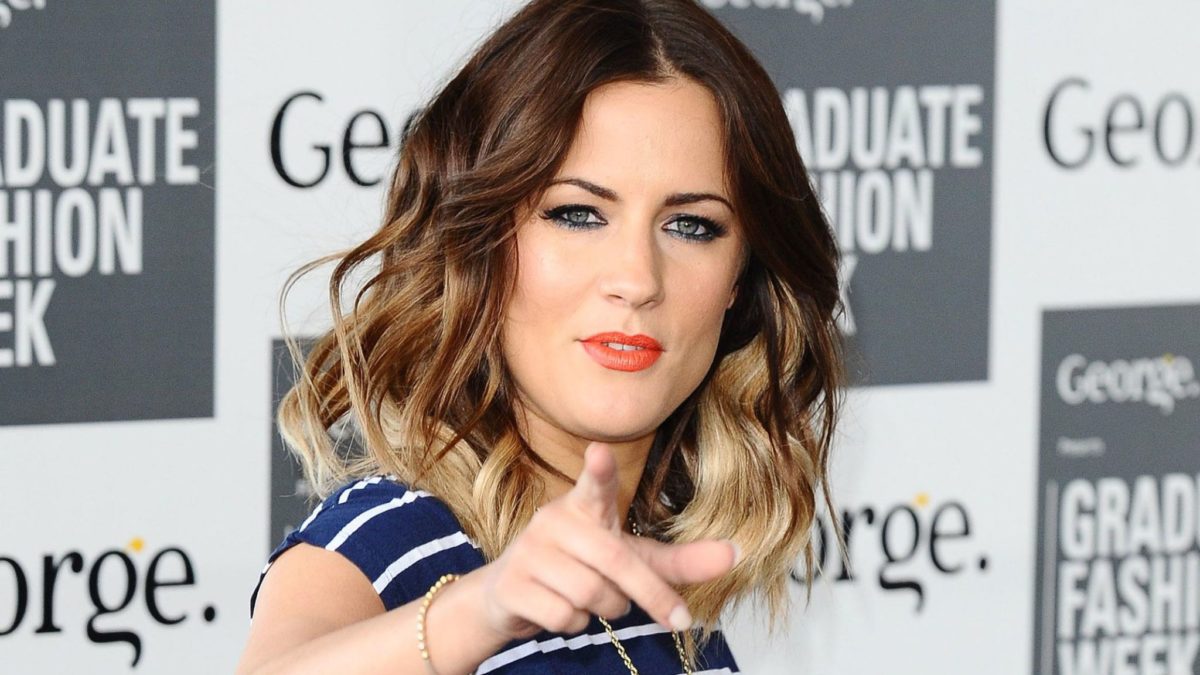Caroline Flack was a bright and bubbly presence on the British television scene. Her North London loquacity landed her into a prominent position as a presenter on such reality shows as Strictly Come Dancing and The Xtra Factor. Then came Love Island, which secured her status as a household name. In 2018, Love Island won a BAFTA award. But Flack, like many figures who entered the dark covenant of a well-paid celebrity resonating with a large audience, was someone who became a target for the tabloid newspapers — most prominently, The Sun, one of Rupert Murdoch’s rags. (After the tragedy that was to come, The Sun was deleting its most savage articles and, with high hypocritical gloss, pretending as if it had always been a Flack booster and that this vulgar meatgrinding outlet actually cared about the mental health and wellbeing of its targets.)
Despite all this, all seemed to be going well for Flack. At least on the surface. Until the police were called during the early morning hours of December 12, 2019. Neighbors had heard shouting and scuffling. And Flack’s boyfriend, a very tall 27-year-old tennis player named Lewis Burton, was believed to be the victim of assault by Flack. The media disseminated images of a bloody bed. Various reports speculated that the dried pools of blood had come from Flack smashing a glass, receiving a deep cut from a major vein. Both Flack and Burton were sent to the hospital to receive treatment.
It’s difficult to know precisely what happened or who was in the wrong, but we do have enough details to draw some conclusions. Burton reportedly shouted, “Bruv, I was normal until I met her,” to the police as he was being escorted to a waiting car. Neighbors reported six police cars and a police van showing up to Flack’s home in Islington. If the 999 tapes are ever released by the Crown, we will have a better idea of the tone. What we do know is that Burton told the emergency dispatcher that Flack was trying to kill him, that he had received a significant blow to the head from a lamp. “She is going mad,” said Burton. “Breaking stuff. I’ve just woken up. She’s cracked my head open.” Flack believed that Burton had been cheating on her. She could be heard screaming, “It’s all your fault! You’ve ruined my life!” Burton told the operator, “She tried to kill me, mate.” We also know that one of Flack’s ex-boyfriends, Andrew Brady, posted an NDA — dated March 14, 2018 — that he had been required to sign, with the hashtag #abusehasnogender. (Brady’s NDA posts have since been scrubbed from Instagram.) We also know that Brady had also called 999 when he grew concerned about Flack threatening to kill herself.

It’s clear that Flack, at the very least, suffered from significant mental health issues and suicidal ideation. In an October 14, 2019 Instagram post, Flack described how she kept many emotions to herself. “When I actually reached out to someone,” wrote Flack, “they said it was draining.” Flack, like many people who suffer from depression, said that “being a burden is my biggest fear.” It’s also clear that the television producers who profited from Flack wanted to keep these treatable problems under wraps, lest their big star be revealed as less than pristine. After all, the quest for money always takes precedence over a troubled person’s wellbeing.
But the alleged assault was enough for Flack to be dumped from Love Island, replaced by Laura Whitmore. Burton, for his part, publicly stated that he did not support prosecuting against Flack, who plead not guilty. The two had only been dating for less than a year, but we also know, from a September 3, 2019 interview with Heat Magazine, that Flack was pining for marriage and kids. The relationship with Burton may have been driven by certain manic qualities from Flack. In the Heat interview, a third party reported that Flack was “moving at 100 miles a minute” and the two were described as having “insane chemistry.”

The press — particularly The Sun — kept ridiculing Flack with impunity as she faced the burden of losing her primary gig and the indomitable attentions of the Crown Prosecution Service, who was set to begin trial on March 4th. It remains unknown if the CPS was motivated by significant evidence that they planned to introduce into court to prosecute against Flack or that the so-called “show trial” represented the bounty of landing a big fish. We do not know if Burton, like Brady before him, was coerced into silence by Flack’s handlers. But the only conclusion that any remotely empathetic person can draw here is that Flack needed significant help and that the intense scrutiny was too much for her to bear, as she posted on Instagram on December 24, 2019, and that this needed to stop — for the sake of Flack herself and all who loved her. Burton and Flack wanted to be together, but Flack was banned from having any contact with her. Burton defied this ban on Valentine’s Day, posting a message on Instagram reading “I love you.”
Two days later, Flack was dead. It was a suicide. She was only 40 years old.
Many celebrities have blamed the British media for contributing to Flack’s incredibly sad decline. I would respectfully suggest that these well-meaning people are thinking too small. This is the third suicide that Love Island is responsible for. Two previous contestants — Sophie Gradon in 2018 and Mike Thalassitis in 2019 — also took their own lives after bloodthirsty attention from the media. It is estimated that at least 38 people have died because of reality television. It’s clear that creator and executive producer Richard Cowles and producer Ellie Brunton showed no compunction as they lined their opportunistic pockets and are also partly to blame for these three deaths. They willingly preyed on the hopes and dreams of presenters and contestants, meticulously designing a television show that would be received by the Fleet Street scavengers with a sociopathic motivation for maximum ridicule. In other words, Cowles and Brunton engineered a show acutely harmful to human life. Love Island should be canceled immediately.
It is also clear that there is something significantly warped and cruel about the Crown Prosecution Service’s process. When you ban two people from having any contact with each other right before the holidays, and one of those people suffers from significant mental health issues and is already under intense scrutiny by News Group jackals, then this is callousness writ large. Even if the CPS had significant evidence to prove that Flack had willfully assaulted Burton, then it certainly had an obligation to ensure that Flack was safe and provided with care and not harmful to herself or others before carrying on with their trial.
One must also ask about the people who Flack surrounded herself with. Flack clearly had a history of erratic behavior. Did they do anything to get her treatment? Did they adjust her schedule so that she could get well? Or were they, like Cowles and Brunton, more driven by the sizable paychecks rather than the common decency of helping a troubled person to get well? Flack was tearing apart her home on December 12th. Was this the most violent she had ever been? How much of this violence could have been stopped if the television industrial complex had considered the greater good of getting a star presenter the treatment she needed?
I am not arguing that Flack’s alleged assault should never have been investigated. But, goddammit, nobody needed to die over this. Our moral obligation for mentally troubled people is to offer compassion and the opportunity to seek treatment so that they can live long, happy, and fruitful lives. But today’s cancel culture advocates are swift and casual in their gleeful zest for vituperation, refusing to comprehend that their targets are flawed human beings capable of contrition and self-examination. The people who have done wrong in the collective eye are truly doing their best to conquer their demons and curb their harmful behavioral patterns. But the media — The Sun and the unchecked harassment, the calls for permanent debasement, and the death threats that profit-motivated sociopaths like Jack Dorsey heartlessly refuse to curb on Twitter — is contributing to a culture where help and forgiveness are increasingly being eroded. How many people have to die before we address the problem? How many lives have to be destroyed before we acknowledge that giving people treatment and a second chance is also an essential and ineluctable part of social justice?
